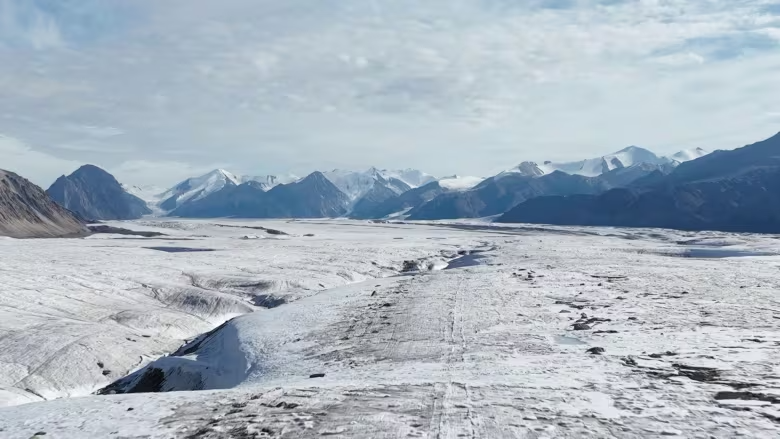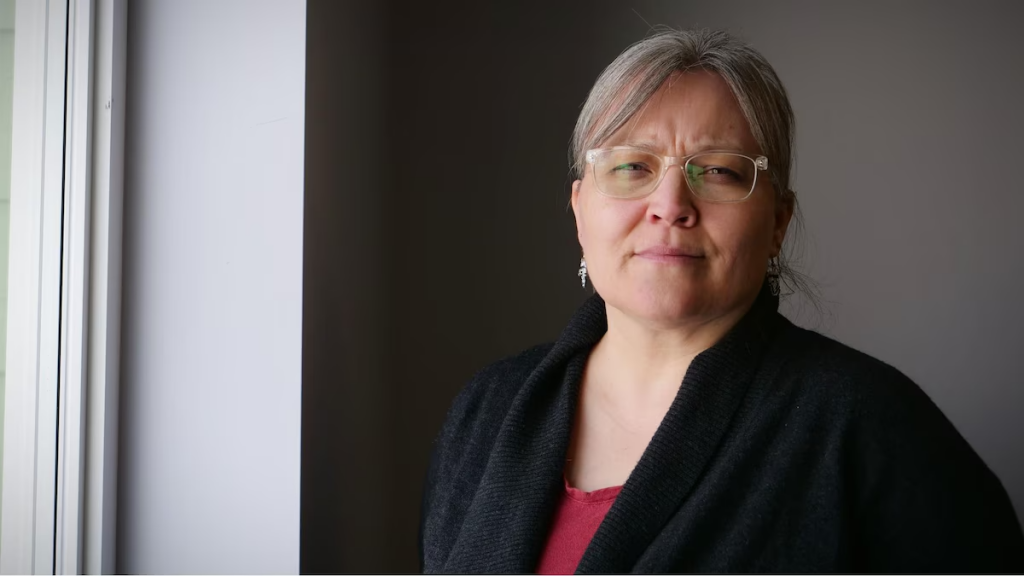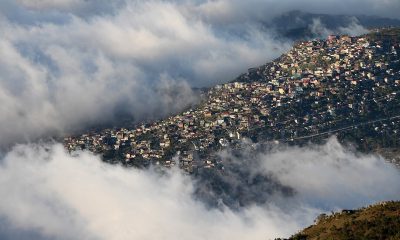Canada News
Nunavut government wants to open a protected area in the High Arctic to tourism

Milne Fiord, part of the Tuvaijuittuq Marine Protected Area, in July 2022. The government of Nunavut wants to allow tourism, recreational and outfitting activities within the marine protect area in the High Arctic. (Dustin Patar/CBC)
Tuvaijuittuq Marine Protected Area off coast of Ellesmere Island considered the last ice area
The Government of Nunavut is pushing the federal government to allow tourism, recreational and outfitting activities in the Tuvaijuittuq Marine Protected Area in the High Arctic.
With certain exceptions, no human activity has been authorized there for the last five years.
In a letter, Nunavut’s Department of Environment asked Fisheries and Oceans Canada (DFO) to adopt a ministerial order saying “certain activities can occur within a Marine Protected Area,” or that recognizes “specific tourism, recreation, and outfitting activities as ‘on-going’ under section 35.1 (1) (c) of the Oceans Act.”
“Our support is not merely conditional but contingent upon immediate and substantive action by DFO,” Nunavut’s deputy environment minister Yvonne Niego wrote in the letter addressed to DFO deputy minister Annette Gibbons on March 25.
Niego also wrote that “new considerations” emerged since the signing of Nunavut’s devolution agreement in January.
Niego did not share specific details about the type of tourist, recreational or outfitting activities envisioned for the area.
The last ice area
The 319,000-square-kilometre Tuvaijuittuq Marine Protected Area is off the northwest of Ellesmere Island in Nunavut’s High Arctic.
In Inuktitut, Tuvaijuittuq means “place where the ice never melts.”
According to DFO, the marine protected area is considered one of the last places in the world with year-round sea ice. It also has the oldest and thickest sea ice in the Arctic Ocean.
When it was created in July 2019, the marine protected area became the first in the country to receive interim protection.
This temporary protection was meant to give the government of Canada, the Qikiqtani Inuit Association, and the government of Nunavut more time to explore the feasibility of long-term protection measures in the area.
The parameters of this temporary protection are laid out in a ministerial order in the federal Oceans Act. It does have certain exceptions, including “the exercise of Inuit rights respecting wildlife harvesting as provided for under the Nunavut Agreement, marine scientific research consistent with the conservation objectives of the [marine protected area], safety, security and emergency activities and certain activities carried out by a foreign national, entity, ship or state.”
That protection is set to expire in July. DFO wants to renew it for a period of five years, but the Nunavut government thinks that’s too restrictive.
“The proposed interim measures, as they stand, appear to unjustifiably restrict activities, which is a significant concern for us,” Niego wrote in the letter.


Niego’s department declined an interview with Radio-Canada and sent an emailed statement.
“A balanced approach allows for sustainable use while protecting the environment,” Leanne Babstock, a spokesperson for Nunavut’s environment department, wrote.
“The government of Nunavut recognizes the importance of sustainable recreational, tourism, and outfitting activities within the Tuvaijuittuq Marine Protected Area. The government of Nunavut seeks to expand the proposed list of ‘ongoing’ activities, as defined under part (III) of the Oceans Act, and seeks to formally include these activities,” Babstock wrote.
For its part, DFO acknowledged that it received Niego’s letter, but declined an interview request for this story.
“While the department considers a response, it would be inappropriate to comment further on this matter,” Robert Rombouts, communications advisor for DFO, wrote in an email.
Between July and September 2023, DFO also received support to renew the order from municipalities as well as hunters and trappers associations from the five nearest communities, namely Grise Fiord, Resolute Bay, Pond Inlet, Arctic Bay and Clyde River.
‘Employment opportunities’
Qikiqtani Inuit Association (QIA) president Olayuk Akesuk said he support the territorial government’s request and that tourism in the High Arctic would have positive economic benefits.
“We want to make sure that we respect the tourism industry in that area,” he said. “It is very important for us, as we all know that the employment opportunities in our area is very limited.”
“It’s an opportunity for people outside of Canada to go see what we have in our territory.”
He also said the issue will be the subject of discussions at QIA’s upcoming board meeting in June.
“We still have to go through our board, our executive, to make sure we’re all on the same page,” he said.
A researcher has questions
Derek Mueller is professor at Carleton University’s department of geography and environmental studies. The glaciologist has been studying the effects of climate change on the region’s ecosystem for more than 20 years, including the Milne ice shelf.
From a conservation point of view, he said, the protected area in Tuvaijuittuq is a refuge for ice-dependent ecosystems around the Arctic.
“The climate models that are forecasting climate change into the future suggest that, of all the places in the Arctic, this will be one the last of places where there will be reasonably thick sea ice that may hang around the longest,” Mueller said.
Mueller said the territory’s request raises several questions about the scale of future tourism activities.
“Whatever activity goes on in that area should be evaluated for its impact,” he said.
“It would depend on the scale of those operations. If it’s small groups that are going on ski tours, or snowmobiling, it might not be very problematic for the environment. Obviously, a bigger operation like cruise ships going around 24/7 would be a different matter, I think.”
-Reporting by Matisse Harvey/Radio-Canada, translated by Emma Tranter
This article is republished from RCI.





















